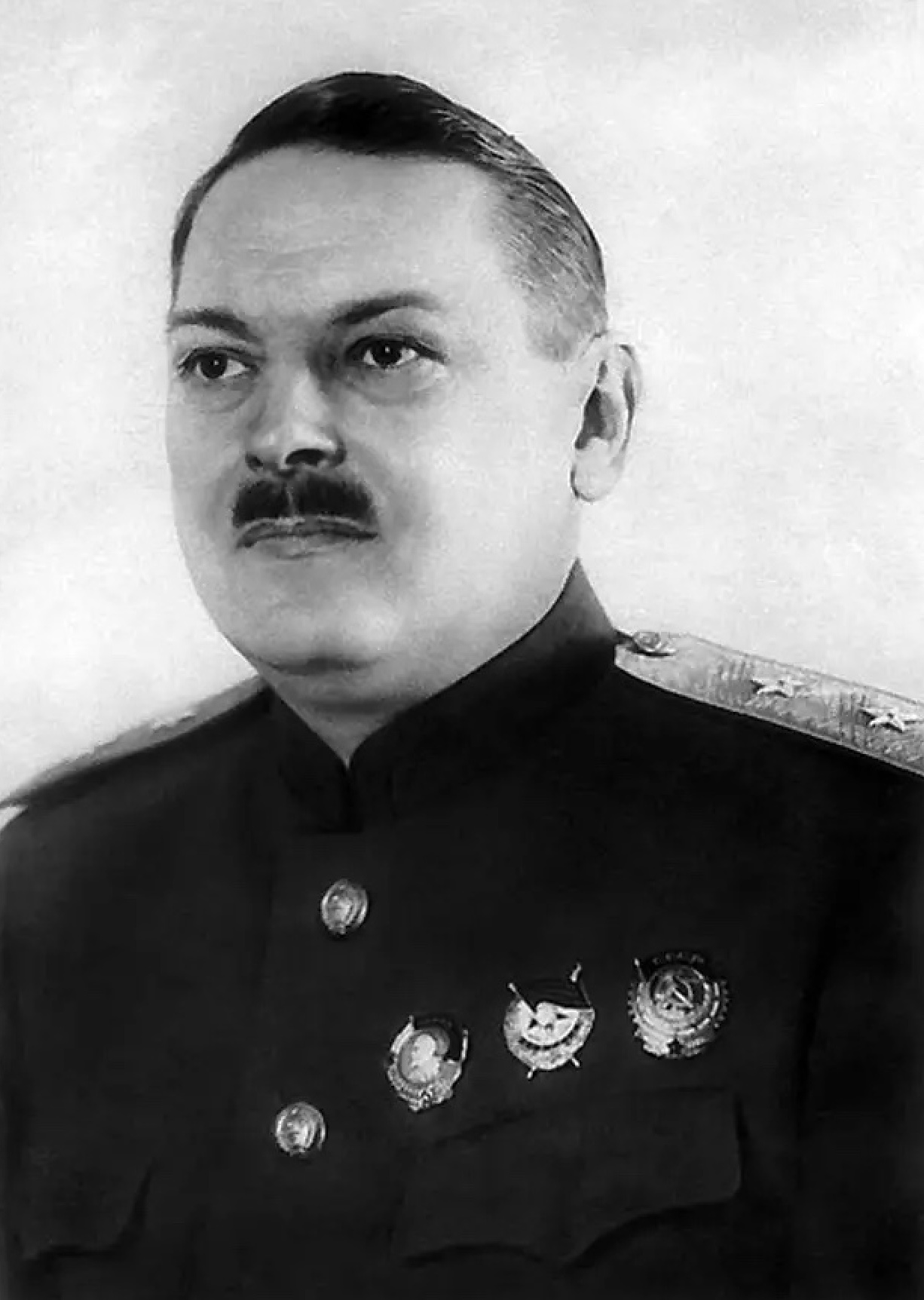More languages
More actions
Andrei Zhdanov Андрей Жданов | |
|---|---|
 | |
| Born | 26 February 1896 Mariupol, Russian Empire |
| Died | 31 August 1948 Moscow, RSFSR, Soviet Union |
| Political orientation | Marxism–Leninism |
Andrei Alexandrovich Zhdanov (26 February 1896 – 31 August 1948) was a Soviet politician. He was the head of ideological work for the CPSU before the Great Patriotic War and led the city of Leningrad during the Nazi siege. After the war, he wanted the party to focus on increasing living standards and combatting bourgeois ideology.[1] Along with Maxim Gorky, he was one of the founders of socialist realism.[2]
Early life[edit | edit source]
Zhdanov was born in Mariupol in 1896. After his father died, he moved to Tver, where he attended secondary school and became a Marxist. He enrolled in the Moscow College of Agriculture and was dispatched to Georgia during the First World War.[2]
Revolution[edit | edit source]
After the February Revolution, Zhdanov became a deputy of a soldier's committee. After the October Revolution, he became a regional commissar of agriculture and helped redistribute land from landlords to peasants.[2]
Post-revolution[edit | edit source]
After the Civil War, Zhdanov moved from Tver to Gorky where he became a Bolshevik propagandist. He moved to Moscow in 1934 as a secretary of the Central Committee.[2] In 1935, he passed a resolution calling cadres to work on ideological and educational as well as economic work.[3] At the founding conference of the Cominform in 1947, he described the UK and France as U.S. satellite states. He divided the world into a democratic camp led by the USSR and an undemocratic camp led by the United States.[4]
Death[edit | edit source]
Zhdanov died in August 1948. The doctor Lydia Timashuk blamed doctors for treating him improperly to accelerate his death.[5]
References[edit | edit source]
- ↑ Roger Keeran, Thomas Kenny (2010). Socialism Betrayed: Behind the Collapse of the Soviet Union: 'Two Trends in Soviet Politics' (pp. 25–26). [PDF] iUniverse.com. ISBN 9781450241717
- ↑ 2.0 2.1 2.2 2.3 "Andrei Zhdanov: On the principles underlying Soviet literature and art" (2018-08-01). Lalkar. Archived from the original on 2022-08-19. Retrieved 2022-12-18.
- ↑ Ludo Martens (1996). Another View of Stalin: 'The struggle against bureaucracy' (p. 105). [PDF] Editions EPO. ISBN 9782872620814
- ↑ Vijay Prashad (2008). The Darker Nations: A People's History of the Third World: 'Paris' (pp. 9–10). [PDF] The New Press. ISBN 9781595583420 [LG]
- ↑ Ludo Martens (1996). Another View of Stalin: 'From Stalin to Khrushchev' (p. 260). [PDF] Editions EPO. ISBN 9782872620814
